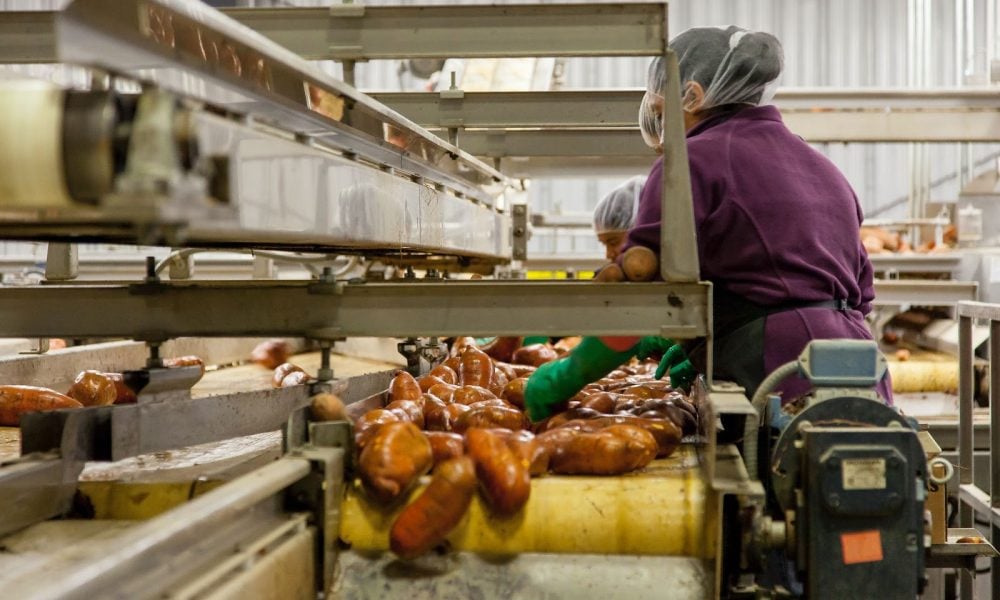Many issues can occur during the food production process; problems detrimental to public health typically result in food recalls, whilst foods with minor issues that aren’t health-related normally result in food reworks. Both these processes are important for businesses to be aware of, and several standard practices have been established to carry out recalls and reworks effectively.
LiberEat supports food safety professionals throughout the supply chain to identify allergens and allergen errors in data. Food safety is at the heart of our business, to protect consumers from allergic reactions and minimise the risk of recalls for businesses.
To help keep businesses and consumers safe, we’ve written this handy guide detailing some common ways to avoid food recalls, what to do if unsafe products are identified during supply chain management, and what a food rework typically entails. While food recalls and reworks are common across many countries, we’ll specifically be looking at how the UK and the U.S. manage these practices.
What is a Food Recall?
A food recall describes removing food products from a business supply chain due to health and safety concerns. Consumers who buy recalled products are usually advised to dispose of the product or return it to the store it was purchased from to get a refund.
The Food Standards Agency enforces food safety and hygiene standards for businesses in the UK, with various food safety legislation regarding the handling and packaging of food that must be adhered to. Businesses that discover their food product doesn’t meet the legal requirements for food safety are advised to recall the food themselves and contact their local authority for further advice.
The FSA guidelines state that If the food has reached consumers, the FSA Incidents team should be notified immediately as they may need to issue a recall notice to inform the general public of the product’s potential dangers. For example, a common recall in the UK is when a product includes Milk (one of the 14 major allergens), but milk is not adequately declared on the packaging.
In the U.S., food recalls are handled by the Food & Drug Administration (FDA) and will require products to be recalled for similar reasons as in the UK, such as issues with food packaging or health and safety concerns.
How Can Cross-Contamination Result in Food Recalls?
Cross-contamination is a common reason for food recalls. Bacterial cross-contamination may occur when raw and cooked food interact with one another due to using the same cooking utensils and chopping boards, for example, and staff not washing their hands between handling cooked and raw food.
To help avoid this issue, It’s important to have separate utensils and cooking boards for raw and cooked foods while preparing them at a safe distance from one another or to make sure to clean surfaces and utensils between handling raw and cooked foods.
Staff must also maintain good hygiene by washing hands before and after handling food while storing raw and cooked foods separately.

Another form of cross-contamination is allergenic cross-contamination, also known as cross-contact. This describes when the allergen from one food is transferred to another due to their close contact; an example would be a knife that contains traces of peanut butter then being used to slice a loaf of bread.
Triggering a consumer’s allergic reaction can have potentially fatal consequences such as Anaphylaxis. Food businesses must follow similar steps as they do to avoid bacterial cross-contamination, such as proper hygiene, the cleaning of cooking equipment, and effective food storage – which can all help minimise the chances of cross-contact occurring.
The Importance of Correct Allergen Labelling
Incorrect allergen labelling is another common reason for food recalls. This is where LiberEat can help food businesses by detecting allergens missing from their food allergen labels and communications to consumers.
UK legislation such as Natasha’s Law requires the 14 Major Allergens, also known as the 14 main allergens or simply as the 14 allergens, to be clearly labelled in the packaging of foods containing one or more of these ingredients.
In the U.S., allergen labeling is primarily covered by two main laws: The 2004 Food Allergen Labeling and Consumer Protection Act (FALCPA), and the 2021 Food Allergy Safety, Treatment, Education, and Research Act (FASTER). Both Acts are amendments to the Food, Drug, and Cosmetic Act (FD&C), the primary US law regulating cosmetics, medicine, and food products.
FALCPA identified what was known at the time as the 8 Major Allergens, also known as the Big 8 Allergens – eggs, milk, fish, crustacean shellfish, tree nuts, peanuts, soybeans, and wheat – as being responsible for the majority of food allergies and required food businesses to label food products containing any traces of these ingredients. The 8 Major Allergens were then revised following the FASTER Act being signed in 2021, adding Sesame to the list of Major Allergens.
Information on the subject can be found in our Allergen Information Hub, and we’ve also listed the UKs 14 allergens below:
LiberEat has developed allergen and error detection technology to help businesses employ correct allergen labels on their products.
Our cutting-edge technology outperforms current methods of allergen data checking. It can work alongside current methods as a second line of defence to keep consumers safe and help businesses avoid legal and reputational damage.
If interested in learning more, please don’t hesitate to contact us.
What is a Food Rework?
Food reworking is a lesser-known aspect of food production but is still important for many businesses. While utilised across the UK and the U.S., food reworks appear to be more common stateside as no definition of reworks can be found from the UK Food Standards Agency, despite many UK-based companies offering services to help businesses improve their reworking process.
The FDA in the United States defines a food rework as “clean, unadulterated food that has been removed from processing for reasons other than insanitary conditions or that has been successfully reconditioned by reprocessing, and that is suitable for use as food”.
Examples of reasons for carrying out a food rework are:
- Reprocessing an excess amount of an ingredient from one product for use in another, such as using excess meat for burgers as a pizza topping.
- Snack foods, such as chocolates, that are misshapen may be reused for a “bite-sized” smaller sold version of the product.
- Overcooked bakery products may have burnt edges cut off and reintroduced to food production.
- Bread crumbs that are used as a topping for a new product.
By reusing food that would otherwise be disposed of, businesses can save money by spending less on waste disposal while also spending less on ingredients. Reducing food waste also increases sustainability as less food waste is going to landfills that contribute to greenhouse gas emissions – Too Good To Go states that food waste is responsible for 10% of these emissions, and 2.5 billion tons of food are wasted annually.
There are potential dangers if food reworks are handled incorrectly. For example, it’s important to remember to change a product’s allergen labelling if reworking food containing one of the 14 major allergens into a food item that initially contained no allergens.
To avoid bacterial contamination, food items meant to be reworked into the next day’s production must also be stored appropriately at the correct temperature in a fridge or freezer. Procedures should be implemented and communicated to all relevant staff to ensure food reworks are handled correctly.
We hope this has clarified the difference between food recalls and reworks. If you’re interested in reading similar content from us, look at our recent articles on Food Safety Management Systems and Nut Allergies.
LiberEat - Allergen Error Detection Software
Food allergen rules and regulations continue to change and evolve. Food businesses in production, hospitality, catering, and retail must be vigilant when working with ingredients, products, and dishes containing allergens and exercise due diligence when providing ingredient and allergen information to consumers. Successful allergen management is a big part of Food Safety professionals creating a culture of care and excellence within their teams.
LiberEat offers a second line of defence for food businesses by detecting errors, allergens, and other harmful ingredients with our proprietary Allergen Detection Software. Food businesses can apply this technology directly to identify errors in allergen communications, preventing the risk of injury to consumers. Contact us today to learn more about how we can support your existing food safety processes.
LiberEat works closely with food businesses to ensure consumers are safe and healthy when consuming your produce.
To find out how LiberEat Technology supports food businesses to detect allergens and errors, to protect consumers
Sources
CFR – Code of Federal Regulations Title 21 | U.S. Food & Drug Administration
Report a food or feed safety incident | Food Standards Agency
S.578 – FASTER Act of 2021 | Congress.gov
Federal Food, Drug, and Cosmetic Act (FD&C Act) | U.S. Food & Drug Administration
H.R.3684 – Food Allergen Labeling and Consumer Protection Act of 2003 | Congress.gov
Food incidents, product withdrawals and recalls | Food Standards Agency
The Food Labelling (Amendment) (England) (No. 2) Regulations 2004 | Legislation.gov.uk
Too Good To Go: Join Our Food Waste Movement | Too Good To Go

